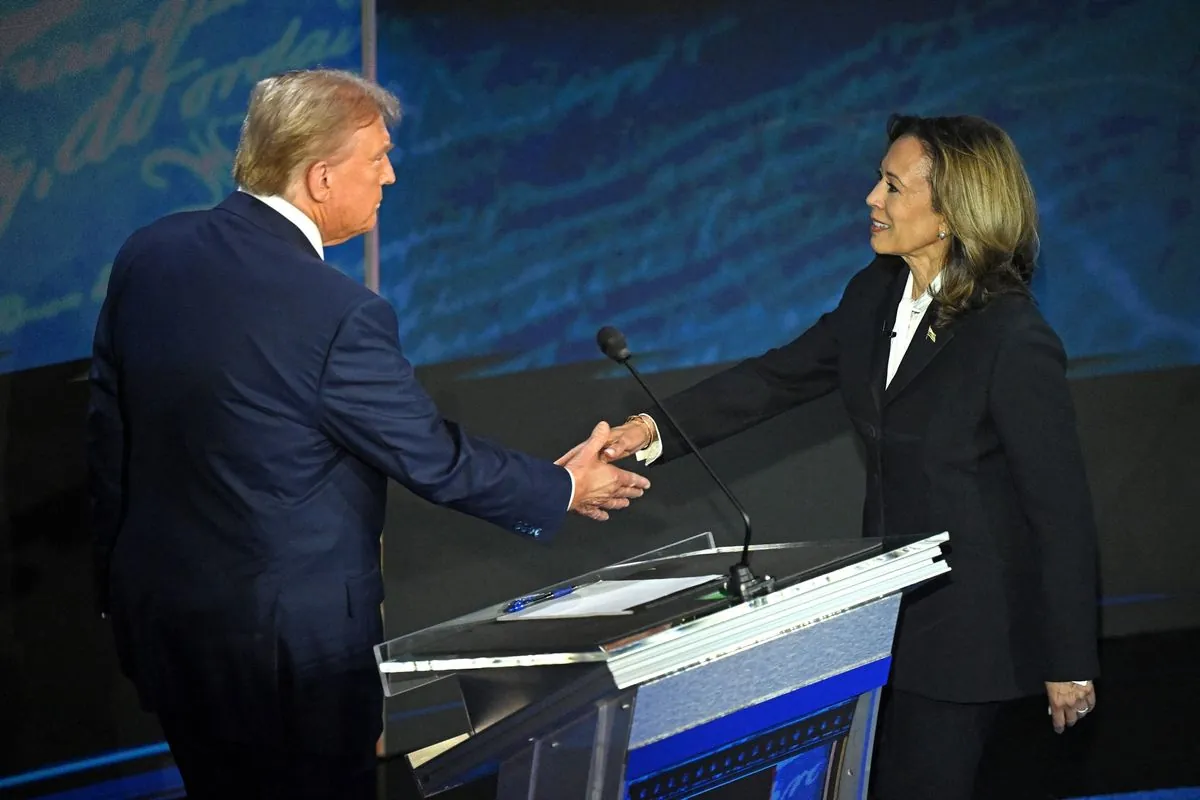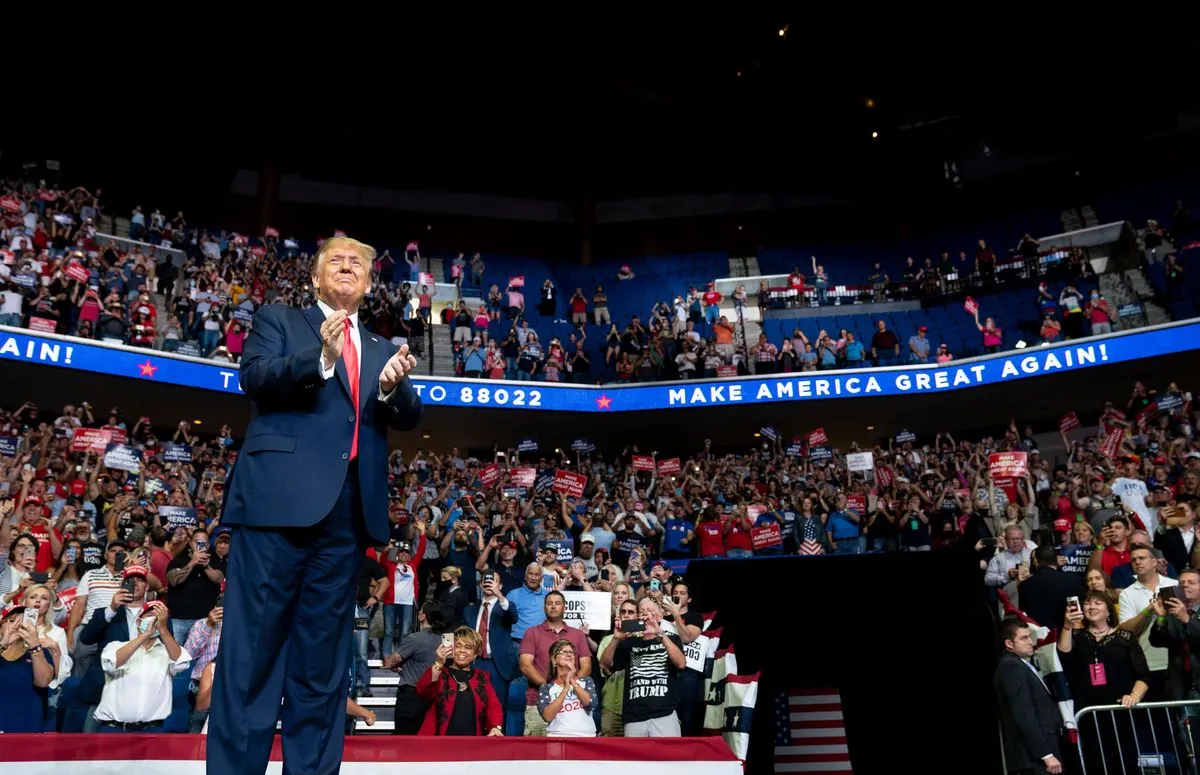Trump's Debate Performance Reveals Disconnect from Mainstream Audience
Former President Trump's recent debate with Vice President Harris highlighted his reliance on base-specific rhetoric. His inability to connect with a broader audience raises questions about his campaign strategy.

The recent debate between former President Donald Trump and Vice President Kamala Harris has shed light on the evolving dynamics of political communication in the United States. The event, which took place two days ago, on September 10, 2024, revealed stark contrasts in the candidates' approaches and their ability to connect with a diverse audience.
Trump's performance during the debate highlighted a significant shift in his political positioning since his initial rise to prominence in 2016. Eight years ago, Trump's success in the Republican nominating contest was largely attributed to his willingness to embrace fringe right-wing rhetoric, which resonated with a disaffected segment of the party base. This strategy, which set him apart from mainstream Republican figures, helped him secure a loyal following and ultimately the nomination.
However, the political landscape has changed dramatically since then. Trump now finds himself at the center of Republican discourse, with no meaningful space to his right. This shift has had a profound impact on his communication style, as evidenced in the recent debate.

Throughout the debate, Trump relied heavily on familiar phrases and references that have become staples of his rallies and interviews with sympathetic media figures. These included vague allusions to controversial topics and unsubstantiated claims that have circulated within his base. For instance, his incomplete reference to a false claim about immigrants in Ohio was met with confusion by those unfamiliar with the pro-Trump conversational universe.
Vice President Harris effectively capitalized on Trump's communication style by challenging him on various points, prompting defensive responses that often strayed from substantive policy discussions. The debate moderators, David Muir and Linsey Davis of ABC News, also played a crucial role by fact-checking several of Trump's false claims, including assertions about crime rates and the legitimacy of the 2020 election.
"Polling had shown that I won the debate easily."
Following the debate, Trump visited the "spin room," a term that originated in the 1980s to describe the area where candidates and their surrogates attempt to shape media narratives. There, he claimed victory based on online polls conducted by his supporters, a move reminiscent of his approach to social media and his own platform, Truth Social, launched in February 2022.
This reliance on echo chamber feedback highlights a broader issue in Trump's campaign strategy. By catering almost exclusively to his base, he risks further alienating undecided voters and those outside his core support group. As Vice President Harris pointedly stated during the debate, "Donald Trump has no plan for you," addressing potential swing voters directly.
The debate performance underscores the challenges Trump faces in broadening his appeal beyond his loyal base. As the 2024 election approaches, it remains to be seen whether this strategy of doubling down on base-specific rhetoric will be sufficient to secure victory in an increasingly diverse and politically engaged electorate.


































